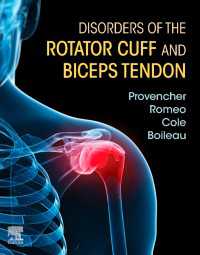Description
Technological advances over the last two decades have placed genetic research at the forefront of sport and exercise science. It provides potential answers to some of contemporary sport and exercise’s defining issues and throws up some of the area’s most challenging ethical questions, but to date, it has rested on a fragmented and disparate literature base. The Routledge Handbook of Sport and Exercise Systems Genetics constitutes the most authoritative and comprehensive reference in this critical area of study, consolidating knowledge and providing a framework for interpreting future research findings.
Taking an approach which covers single gene variations, through genomics, epigenetics, and proteomics, to environmental and dietary influences on genetic mechanisms, the book is divided into seven sections. It examines state-of-the-art genetic methods, applies its approach to physical activity, exercise endurance, muscle strength, and sports performance, and discusses the ethical considerations associated with genetic research in sport and exercise.
Made up of contributions from some of the world’s leading sport and exercise scientists and including chapters on important topical issues such as gene doping, gender testing, predicting sport performance and injury risk, and using genetic information to inform physical activity and health debates, the handbook is a vital addition to the sport and exercise literature. It is an important reference for any upper-level student, researcher, or practitioner working in the genetics of sport and exercise or exercise physiology, and crucial reading for any social scientist interested in the ethics of sport.
Table of Contents
Section 1: General Systems Genetics
1. Why Study the Systems Genetics of Sport and Exercise?
2. Expansion of Knowledge and Advances in Genetics for Quantitative Analyses
3. Human Systems Genetic Modeling Used in Exercise
4. The Translation of Systems Genetics of Exercise to Everyday Life
Section 2: Systems Genetics of Physical Activity
5. Is Physical Activity Regulated by Genetics? Evidence from Animal Models
6. Is Physical Activity Regulated by Genetics? Evidence from Studies in Humans
7. The Evolution of Genetic Mechanisms Controlling Physical Activity
8. Neurogenetics of Motivation for Physical Activity
9. Peripheral Mechanisms Arising from Genetics that Regulate Activity
10. Toxicant and Dietary Exposures as Unique Environmental Factors that Affect the Genetic Regulation of Activity
Section 3: Systems Genetics of Exercise Endurance and Trainability
11. The Evolution of the Human Endurance Phenotype
12. Endurance Phenotype Primer
13. Heritability of Endurance Traits from Animal Research Models
14. Heritability of Endurance Traits from Human Research Models
15. Genetic Contributions to Cardiorespiratory Fitness
16. Genetic Contributions to Mitochondrial Traits
17. Angiotensin-Converting Enzyme and the Genomics of Endurance Performance
Section 4: Systems Genetics of Muscle Mass, Strength, and Trainability
18. Heritability of Muscle Size and Strength Traits
19. Genetic Contributions to Muscle Strength
20. Genetic Contributions to Skeletal Muscle Size
21. Genetic Contributions to Neuroendocrine Response to Resistance Training
22. Myostatin’s Role in Genetic Control of Muscle Size and Strength
23. Alpha-Actinin-3’s Role in the Genetic Control of Muscle Strength and Performance
Section 5: Systems Genetics of Sports Performance
24. Summary Findings on Genetics and Sport Performance
25. Using Elite Athletes as a Model for Genetic Research
26. Twin and Family Studies in Sport Performance
27. Sport Concussion Genetics
28. Systems Genetic Factors Underlying Soft Tissue Injury
29. Sex and Performance: Nature Versus Nurture
Section 6: The Ethics of Systems Genetics in Exercise and Sport
30. Race and Sports Performance
31. The Scientific and Ethical Challenges of Using Genetic Information to Predict Sport Performance
32. Gene Doping: Ethical Perspectives
33. Enhancing Evolution: The Transhuman Case For Gene Doping
34. The Ethics of Sex Testing in Sport
Section 7: Conclusions
35. Exercise Genomics, Epigenomics, and Transcriptomics: A Reality Check!
36. Afterword - Closing the Loop: Observations and Conclusions
-

- 電子書籍
- 三千万秒の悪夢
-

- 電子書籍
- 脱サラフードデリバリー配達員テンパりマ…
-

- 洋書電子書籍
- Disorders of the Ro…
-

- 洋書電子書籍
- The Barefoot Queen …
-

- 電子書籍
- 週刊東洋経済 2018年12月8日号 …



